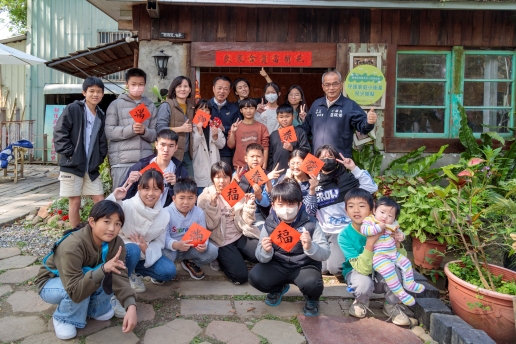Overview of New Immigrants in Taiwan
According to the 2023 New Immigrants' Living Needs Survey by the Ministry of the Interior, new immigrants in Taiwan are predominantly female, accounting for 91.2%, with a growing trend in the proportion of males. Over 70% of new immigrants have lived in Taiwan for over 10 years, and over 30% for over 20 years. Most new immigrants are in the middle-aged group of 35-64 years, with 45.6% aged 45-64. In terms of education, the levels range from 34.7% with education below junior high school to 53.5% with education above high school.
Challenges Faced by New Immigrants
New immigrants encounter various challenges as they adapt to life in Taiwan:
- Emotional Adjustment: Coping with separation anxiety and homesickness after leaving their home country.
- Family Integration: Building relationships with spouses and new family members often involves trust and communication issues.
- Cultural Differences: Adapting to differences in language, food, climate, religion, and lifestyle.
- Multiple Role Pressures: Balancing roles as wives, mothers, daughters-in-law, and sisters-in-law, can create psychological burdens.
Labor Force Participation and Work Environment
New immigrants' labor force participation rate is 75.01%, significantly higher than the national average of 59.17%. Their unemployment rate is only 1.35%, lower than the national average of 3.49%. While they are active in the workforce, they face challenges such as language barriers, physical strain, and workplace biases.
The government should provide more opportunities for learning Chinese and create multicultural-friendly work environments. Flexible job opportunities should also be made available for those with physical or mental challenges.
Entrepreneurship and Household Income Improvement
The survey shows that 14.2% of new immigrants choose entrepreneurship, mainly in the hospitality and retail sectors. However, the main barriers are insufficient funding and market competition. To support new immigrant entrepreneurs, the government could establish dedicated entrepreneurial support programs and low-interest loan schemes.
In terms of household income, the average monthly income of new immigrant families has steadily increased. For example, the percentage of families earning more than NT$100,000 per month increased by 18.21% compared to 2018, indicating an overall improvement in their economic status in Taiwan.
Educational Challenges for the Second Generation
The children of new immigrants in Taiwan can be categorized into two groups:
- Second-generation born in Taiwan: While appearing similar to other children, they may face early language development delays due to their mother's limited Chinese proficiency, as well as peer discrimination issues. Schools and society should offer more support, such as language assistance programs, cultural exchange activities, and psychological counseling.
- Returnee second-generation and stepchildren: For second-generation returnees from abroad or children from cross-border marriages, language, and cultural differences pose challenges, particularly for those at school age. Comprehensive support should be provided, including language training, academic support, and peer integration programs.
Services by Eden's New Immigrant Family Growth Center
The Eden Foundation's New Immigrant Family Growth Center assists new immigrants in adapting to life in Taiwan through various services:
- Language Learning: Offers courses in Taiwanese Hokkien and local culture.
- Cultural Adaptation: Organizes cooking classes, multicultural experiences, and community market activities.
- Psychological Support: Provides stress-relief activities such as yoga, handicrafts, and parent-child group classes.
- Career Development: Offers IT training programs, caregiving courses, and multicultural instructor certification to enhance employment opportunities.
Government Policies and Future Recommendations
- Promote Cultural Understanding: Through education and public awareness campaigns to foster inclusivity and harmony.
- Improve Work Environments: Ensure labor rights and reduce workplace discrimination while promoting training and professional development.
- Support Multilingual Services: Provide interpreters and multilingual systems in healthcare facilities to reduce language barriers.
New immigrants are an integral part of Taiwan's society, and their adaptation and integration are vital for fostering a harmonious and diverse community. Through the combined efforts of the government, non-profit organizations, and the public, the quality of life and social integration of new immigrants can be further enhanced, creating a more inclusive and diverse future for Taiwan.
Written by: Xiao Qianpei, Editor-in-Chief of Global News Network for New Residents
Interviewee: Julie Ying Zhu, Director of the Eden Foundation New Immigrant Family Development Center





_主圖.jpg)

